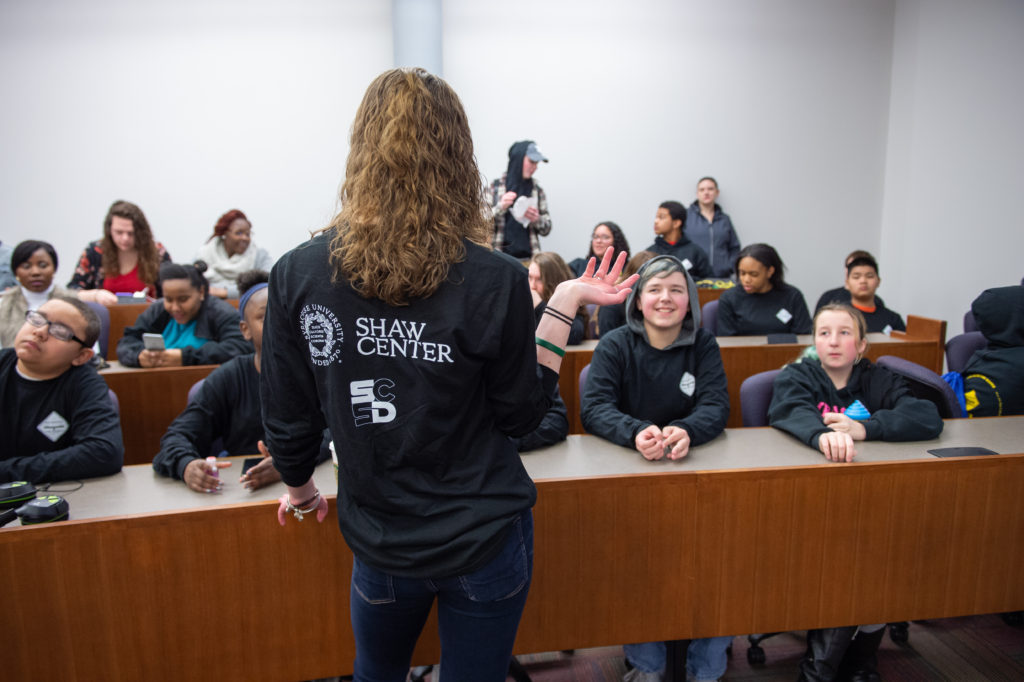Service learning is an educational approach to experiential learning where a student applies classroom knowledge into community-based experiences. Encouraging students to move beyond the classroom, service learning combines academic theory with civic engagement while addressing community needs.
The Shaw Center provides support and guidance for faculty on the high impact practice of service learning curriculum and community-based research. The Center collaborates with faculty to support the development of community-based learning projects and of individual service learning courses by providing guidance on current best practices and models. Likewise, we collaborate with community partners to facilitate mutually beneficial placements that meet community needs and fulfills institutional learning outcomes while taking into consideration risk management, scheduling, and the compatibility of campus and community expectations.
Service learning for
With lessons learned — and stories shared — from hundreds of community partners and thousands of hours of student engagements, the Shaw Center offers nonprofits, schools, businesses, and other neighbors a font of invaluable information. We invite our diverse network of civic colleagues to tap our brains (and hearts and hands) as you plan, design, implement, and improve your programs.
The Shaw Center for Public and Community Service is committed to facilitating sustainable partnerships with nonprofit organizations in the city of Syracuse and Onondaga County. We respond to both the university and community-based organizations by matching student, faculty and staff interests and schedules with community defined needs. The service learning program provides students the opportunity to experience the richness of our community.
Our growing roster of more than 100 community partners underscores the challenges we face as a society. The Shaw Center embraces commitment and encourages new endeavors with community organizations. Spanning diverse segments of civic engagement, our student volunteers work with local schools, charities, healthcare providers, food-service entities and other social-service organizations in thousands of ways every semester.
Resources for Community Partners
There are numerous ways to incorporate community based learning opportunities into the college classroom. When designing a community based service learning experience you might consider the following questions:
What are the learning objectives of the curriculum?
What kinds of community experiences do you imagine for students?
How will those experiences complement course learning objectives?
How might class enrollment affect the curriculum?
How can the course and class time support the kinds of issues that community work often raises?
How many hours of service do you want students to complete?
What other course responsibilities will students have as they interact with community sites?
What kinds of assignments affect or are affected by the needs of the local community?
How will you evaluate student learning? What role, if any, will community partners have in that evaluation?
Once you have established your goal for designing a service component, the staff at the Shaw Center can work with you to coordinate student experiences.
Want to make a difference? You’ve come to the right place. Need to fulfill a course requirement? We’re here to help.
The Shaw Center prepares students to “work for the world, in the world with a sense of social responsibility for its failures and solutions for its future,” in the words of former Chancellor Nancy Cantor. Opportunities abound for students to engage the world, both on and off campus.
Through Leadership, Community Based Service Learning, Literacy Programs, and Consultation, the Shaw Center provides guidance and support for students, faculty and staff to develop academic opportunities that meet learning outcomes while helping our community partners meet their self-identified needs.

